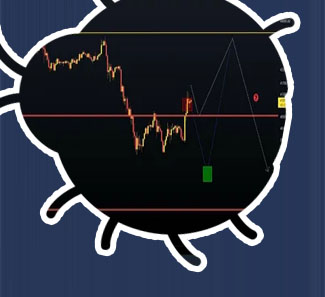Btcexchange
Cryptocurrency enthusiasts looking to navigate the world of Bitcoin exchanges will find these three articles invaluable. From understanding how to choose the right exchange to learning about the latest trends in the industry, these articles provide valuable insights for anyone looking to trade or invest in Bitcoin.
Top 5 Factors to Consider When Choosing a Bitcoin Exchange

When diving into the world of cryptocurrencies, one of the key decisions you'll need to make is choosing the right Bitcoin exchange. With so many options available in the market, it can be overwhelming to select the best platform for your needs. To help you make an informed decision, here are the top five factors to consider when choosing a Bitcoin exchange.
First and foremost, security should be your top priority when selecting a Bitcoin exchange. Look for platforms that offer cold storage for the majority of their funds, as well as two-factor authentication to protect your account from unauthorized access.
Another important factor to consider is the reputation of the exchange. Research the history of the platform, including any security breaches or regulatory issues they may have faced in the past. Opt for exchanges that have a strong track record of reliability and trustworthiness.
Fees are also a crucial factor to take into account when choosing a Bitcoin exchange. Different platforms have varying fee structures, including trading fees, withdrawal fees, and deposit fees. Make sure to compare these costs across different exchanges to find the most cost-effective option for your trading needs.
Additionally, consider the user experience offered by the exchange. Look for platforms that are easy to navigate, offer a wide range of trading pairs, and provide responsive customer support. A user-friendly
The Rise of Decentralized Exchanges in the Bitcoin Market
Decentralized exchanges have been gaining traction in the Bitcoin market, offering users a more secure and private way to trade their digital assets. These platforms operate without a central authority, allowing traders to retain control of their funds and trade directly with one another. This decentralized approach eliminates the need for third-party intermediaries, reducing the risk of hacks and fraud.
One of the key advantages of decentralized exchanges is their ability to provide users with a high level of anonymity. Unlike centralized exchanges, which require users to go through a lengthy verification process, decentralized platforms allow traders to remain anonymous while conducting their transactions. This added layer of privacy has made decentralized exchanges increasingly popular among those who value their anonymity.
Another benefit of decentralized exchanges is their resilience to censorship and regulatory intervention. Since these platforms are not controlled by a single entity, they are not subject to government regulations or restrictions. This makes decentralized exchanges a viable option for traders in regions where strict regulations may limit their trading options.
Additionally, decentralized exchanges offer users a greater degree of security. By eliminating the need for a central authority to hold users' funds, decentralized platforms reduce the risk of hacks and theft. This added security has made decentralized exchanges a preferred choice for many traders looking to safeguard their digital assets.
How to Safely Store Your Bitcoins After Trading on an Exchange
When it comes to storing your bitcoins after trading on an exchange, security should be your top priority. With the increasing popularity of cryptocurrencies, hackers are constantly looking for ways to gain access to digital wallets and steal funds. This is why it is crucial to follow some best practices to keep your bitcoins safe.
One of the most secure ways to store your bitcoins is by using a hardware wallet. These physical devices store your private keys offline, making it nearly impossible for hackers to access your funds. Popular hardware wallets include Ledger Nano S and Trezor. Another option is to use a paper wallet, which involves printing out your private keys and keeping them in a secure place away from prying eyes.
It is also important to use strong passwords and enable two-factor authentication on your exchange account. This adds an extra layer of security and makes it harder for hackers to gain access to your funds. Additionally, consider using a secure and reputable exchange platform that has a good track record of protecting user funds.
As a resident of Tokyo, Japan, Satoshi Tanaka emphasizes the importance of storing bitcoins securely. He notes that with the rise of cryptocurrency trading in Japan, it is crucial for investors to take the necessary precautions to protect their digital assets. Tanaka advises fellow residents to prioritize security when storing their bitcoins

